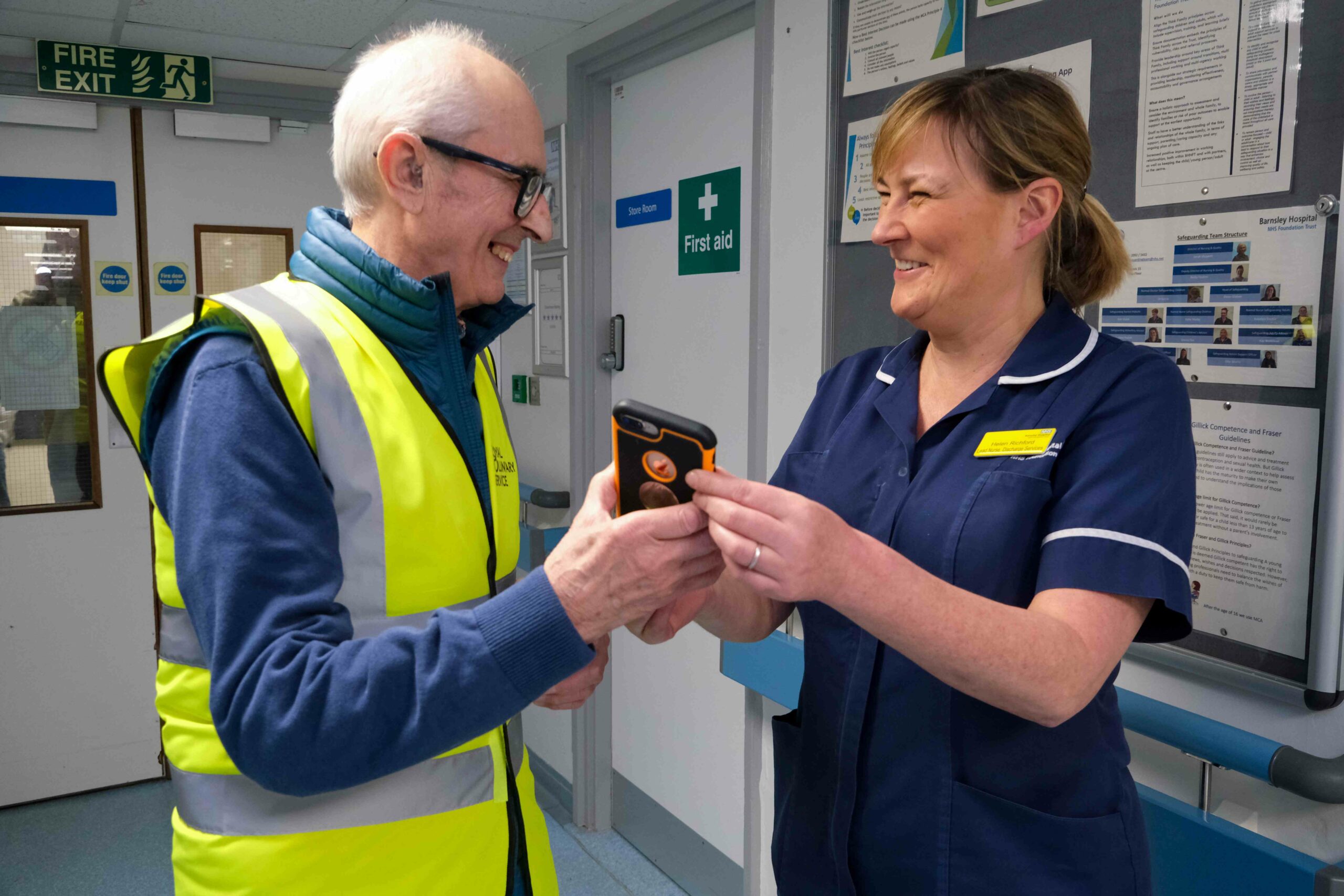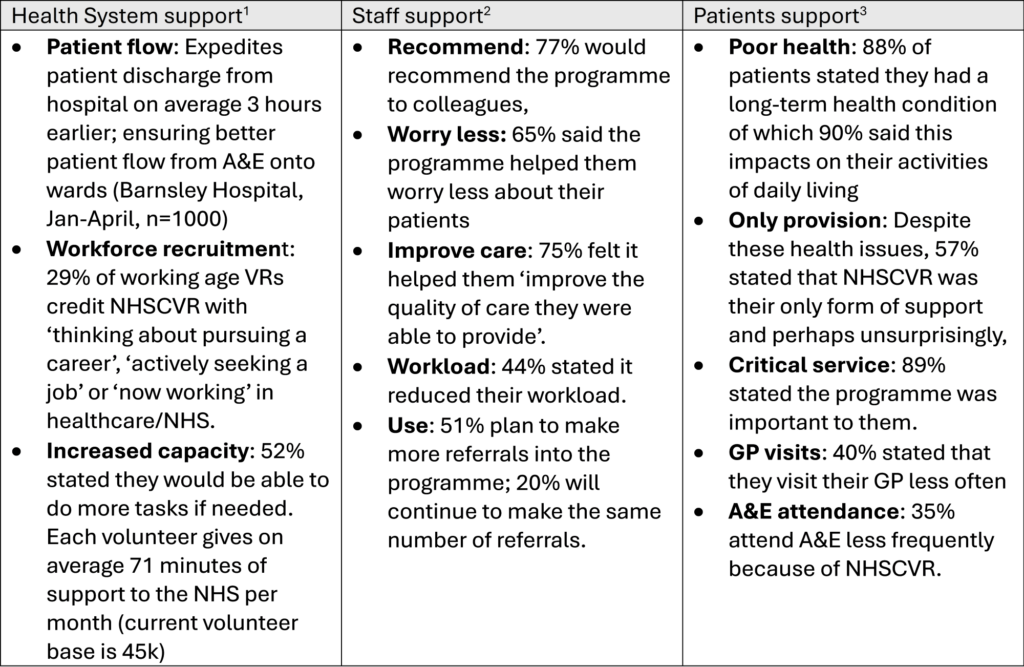A People Powered NHS – A call to all health leaders

Dr Allison E Smith, Director of Research & Insight at the Royal Voluntary Service discusses the key role that volunteers can play in delivering on core NHS goals.
The Prime Minister’s speech on 11th September 2024 pledged that this would be the ‘biggest reimagining of the NHS since its birth’. Hence, as we reflect on the plan for the future, we should challenge ourselves to think differently and work in ways which prioritise patient care and staff wellbeing. We should be bold and ambitious as the founders of NHS were in 1948.
In the original blueprint of the NHS, it was always intended to be a partnership between the state, the citizen and their communities. Public participation in the NHS e.g. via volunteering, informal carers and patient groups, has always played a vital role in the delivery of better health care. But in many ways, public involvement is a postcode lottery – a few areas do it really well, some do it (not well), and others have nothing. From the perspective of a volunteer-involving charity like Royal Voluntary Service – who have been supporting the NHS since before it was even founded – it is hard to get volunteering truly embedded in healthcare delivery. It still feels as if we are on the outside looking in or ‘pushing water uphill’. The purview of ‘integration’ appears largely limited to that of the NHS with social care.
With the public consultation on the 10-Year Health Plan, now is the time to rethink how the NHS – and wider healthcare system – works collaboratively with the public for the common good. System leaders need to stop putting up barriers to public participation and think ‘how can I build inclusive blended teams of staff and volunteers?’. Leaders should be embracing and nurturing the public interest and love for the NHS; 66 per cent of those signing up for the NHS and Care Volunteer Responders programme do so because they ‘want to support the NHS’.1
The business case – in terms of the impact of volunteers on the NHS and wider healthcare system – we feel has been made.2 The NHS and Care Volunteer Responders (NHSCVR) programme – first launched during the pandemic – has continuously proved its effectiveness, from driving system efficiencies to better patient care, workforce recruitment, and staff morale. For system leaders and frontline staff that embed NHSCVR within their local delivery there are big gains to be had.
For those unfamiliar with NHSCVR, this programme is a unique partnership between a charity (Royal Voluntary Service), a public service (NHSE) and a tech company (GoodSAM). It can match, via an App in real-time, requests for support from staff or patients with members of the public that can lend a hand. The programme is a key auxiliary service supporting the NHS and patients to expedite patient discharge, provide practical support to patients at home, deliver equipment for virtual wards, and provide support to ambulance crews waiting outside A&E. It is a free resource for local areas, is NHS approved, and can provide a critical safety net to mobilise volunteers at scale at times of high demand on the system.
In the past four years the programme has achieved significant scale; more than 2.6 million activities have been delivered in support of patients and the NHS, 221,000 individuals have been supported, and over 1 million members of the public responded. And while these numbers are indeed impressive, on the ground in local areas the programme delivers significant benefits for the system, staff, and patients – see table below.

The data also finds that those who volunteer report higher wellbeing. In a 2021 study by the London School of Economics, those that volunteered experienced statistically significant higher wellbeing compared to those who did not volunteer, and this wellbeing impact lasted for at least 3 months.6
This article is a call to all NHS system leaders; the breadth of impact – from this programme – plus others (see Helpforce) surely warrant the immediate integration of volunteers in NHS ‘BAU’, and centre stage in our reimagining of the NHS over the next 10 years.
Royal Voluntary Service will be attending the Integrated Care Delivery Forum in London on the 5th November.
For more information or to connect with a member of our team, please reach out to your Regional Relationship Manager. Contact details are available at nhscarevolunteerresponders.org.
References
1 NHSCVR baseline survey, n=8481)
2 See King’s Fund 2018 Views from the Frontline, Helpforce, 2020, Volunteer Innovators Programme
3 Programme data & Volunteer Annual Survey March, n=6302
4 Staff Annual Survey October 2024, n=345
5 Client/Patient Survey June/July 2024, n=687